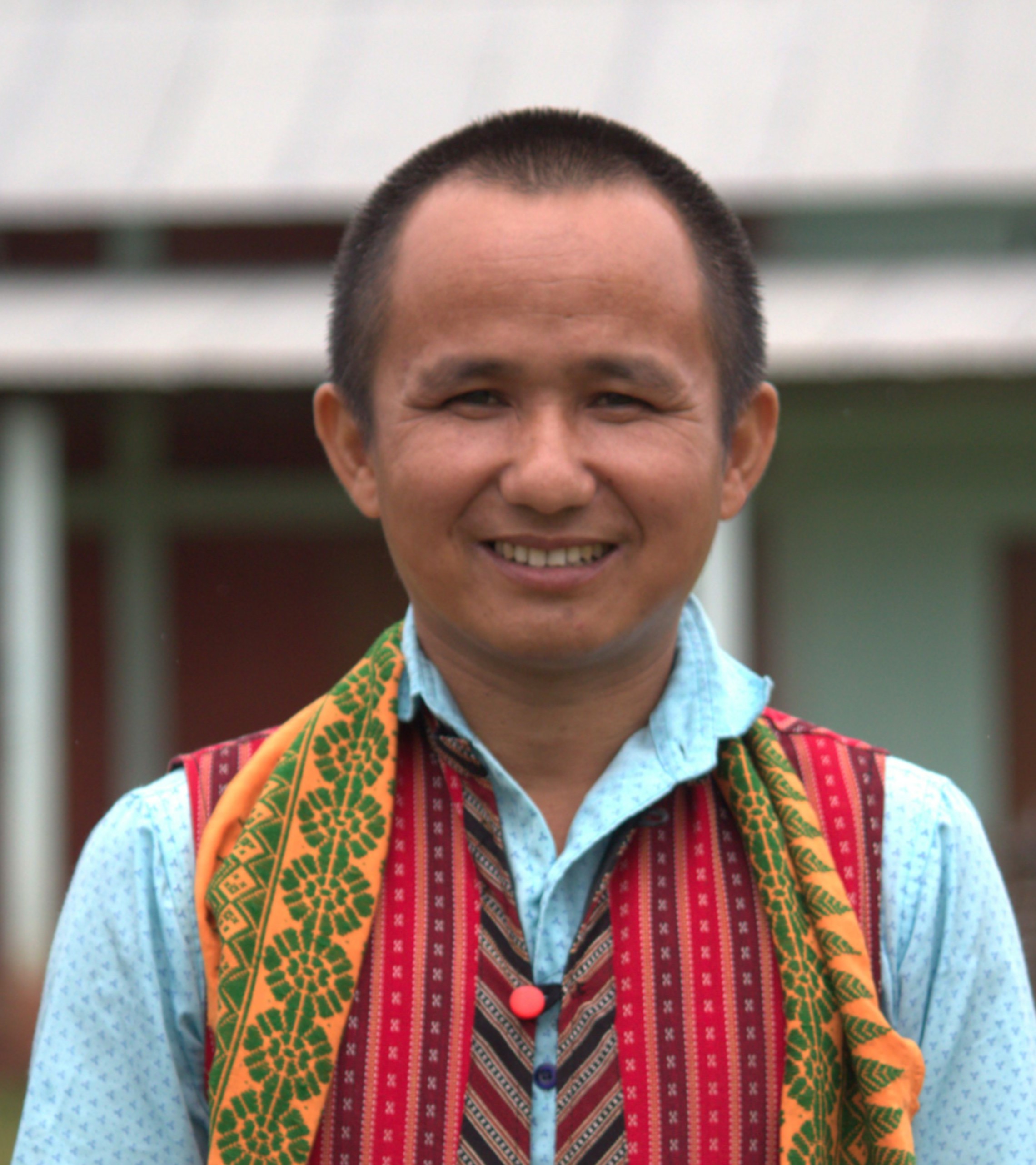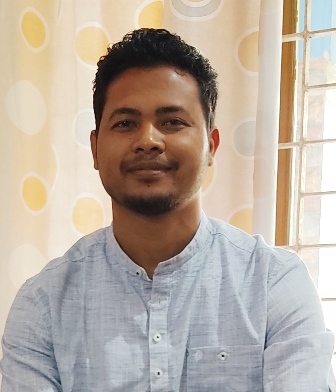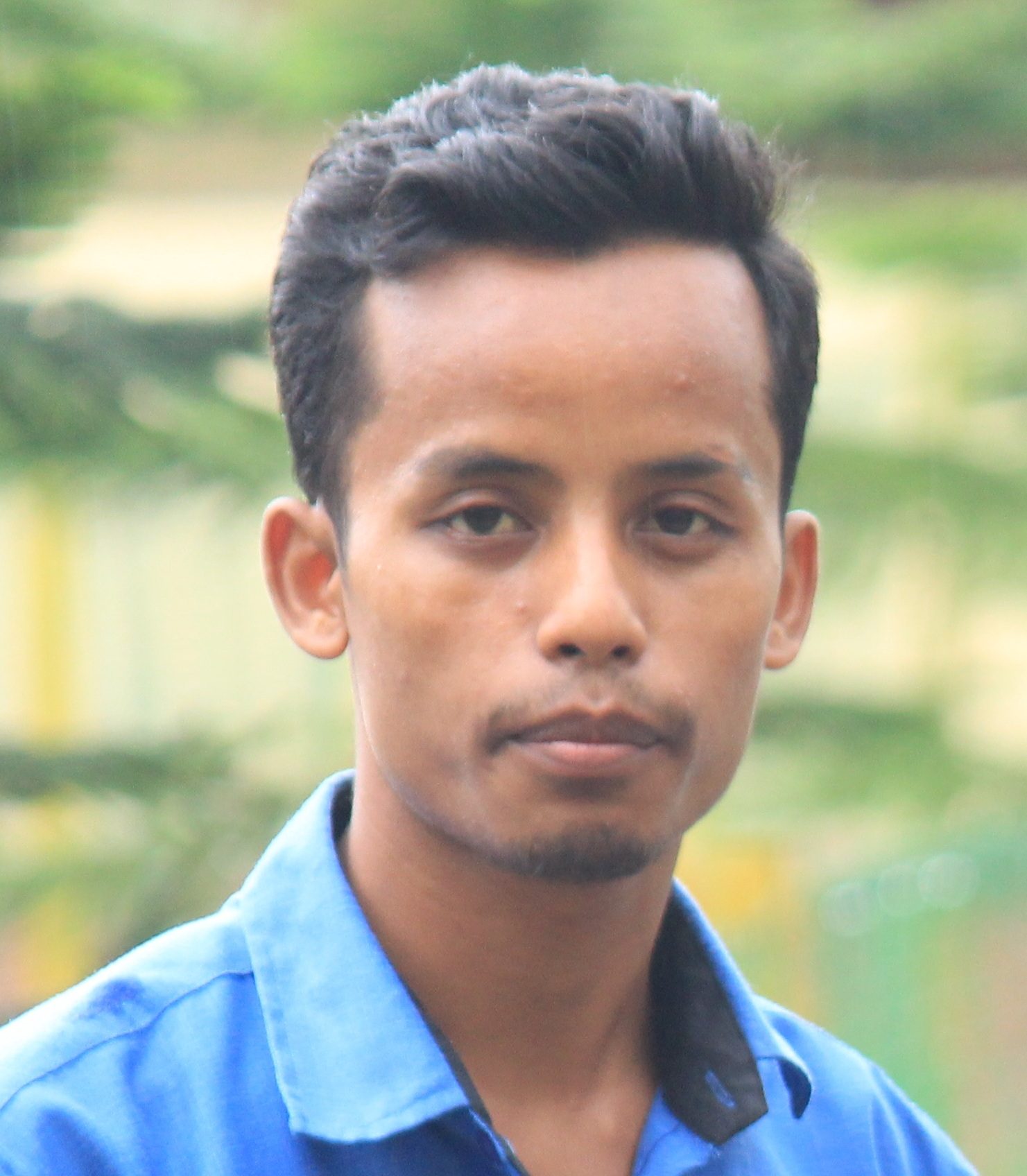The Department of Political Science was established in the year 1981. Presently the department has 60 seats for honours course and there are more than 500 students enrolled in HS course.and BA General course. The department of Political Science conducts classes according to the syllabus provided by the Univeristy of Dibrugarh. Infomative lectures along with ample study materials are provided by the faculty members to the students which has helped the department to maintain a consistent record of academic success over the years. Students in the department are encouraged to pursue higher studies to enhance their knowledge and compete in various national and state level Competitive Exam.
STUDENTS INTAKE(MAJOR): 60
SYLLABUS 4 YEAR UNDERGRADUATE PROGRAM ON POLITICAL SCIENCE – 2023 👈 DOWNLOAD HERE
MR. JATIN MECH

ASSOCIATE PROFESSOR (HOD)
MA , MPhil
Designation : ASSISATANT PROFESSOR
Department : POLITICAL SCIENCE
Contact No. : 9954605066
E-Mail : MECHJATIN93@GMAIL.COM
Dr. PRAKASH BASUMATARY

ASSISTANT PROFESSOR
MA , PhD
Designation : ASSISTANT PROFESSOR
Department : POLITICAL SCIENCE
Contact No. : 6000970395
E-Mail : basumataryprakash83@gmail.com
Mr. Biswajyoti Gogoi

ASSISTANT PROFESSOR
M.A, M. Phil
Designation: Assistant Professor
Department: Political science
MR. RIPUNJOY BORA

ASSISTANT PROFESSOR (CONTRACTUAL)
MA , MPhil (ongoing)
Designation : ASSISTANT PROFESSOR
Department : POLITICAL SCIENCE
Contact No. : 7086741154
E-Mail : RIPUILU444@GMAIL.COM
COs : BA Political Science-Generic Elective (Interdisciplinary Any Four)
Semester-I (Any one)
CO1: GE-1A: Nationalism in India
Course Objectives:
- To help students understand the struggle of Indian people against colonialism. It seeks to achieve this understanding by looking at this struggle from different theoretical perspectives that highlight its different dimensions. The course begins with the nineteenth century Indian responses to colonial dominance in the form of reformism and its criticism and continues through various phases up to the events leading to the Partition and Independence.
- To highlight its various conflicts and contradictions by focusing on its different dimensions: communalism, class struggle, caste and gender questions.
Course Outcomes:
At the completion of the Course the students are able to understand-
- The approaches to the Study of Nationalism in India relating to Nationalism, Imperialism, Marxism, and Subaltern Interpretations.
- Reformism and Anti-Reformism in the Nineteenth Century Major Social and Religious Movements in 19th century.
- Nationalist Politics and Expansion of its Social Base and its Phases of Nationalist Movement: Liberal Constitutionalists, Swadeshi and the radicals; Beginning of Constitutionalism in India.
- Gandhi and Mass Mobilization: Non-Cooperation Movement, Civil Disobedience Movement, and Quit India Movement.
- Social Movements related to the Women’s Question: Participation in the National Movement and its Impact, the Caste Question: Anti-Brahminical Politics, Peasant, Tribals and Workers Movements Partition and Independence.
GE-1B: Contemporary Political Economy
Course Objective:
- To familiarize the students with the different theoretical approaches;
- To give a brief overview of the history of the evolution of the modern capitalist world;
- To highlight the important contemporary problems, issues and debates on how these should be addressed.
Course Outcomes:
The students able to understand
- The approaches to Political Economy Classical Liberalism, Marxism, Welfarism, Neo-liberalism and Gandhian approach.
- Capitalist Transformation a. European Feudalism and Transition to Capitalism b. Globalization: Transnational Corporations, World Trade Organization, Non-governmental Organizations (their role in development).
- Issues in Development-I (i) Culture: Media and Television (ii) Big Dams and Environmental Concerns (iii) Military: Global Arms Industry and Arms Trade (iv) Knowledge Systems
- Issues in Development-II (i) Development and Displacement, (ii) State, International Financial Institutions (IFIs) and Development (iii) Interest Groups, State steered Development and Peoples’ Movements.
Semester II (Any one)
CO2: GE-2A: Feminism: Theory and Practice
Course Objectives:
- To explain contemporary debates on feminism and the history of feminist struggles. The course begins with a discussion on construction of gender and an understanding of complexity of patriarchy and goes on to analyze theoretical debates within feminism.
- It aims to covers the history of feminism in the west, socialist societies and in anti-colonial struggles. Further a gendered analysis of Indian society, economy and polity with a view to understanding the structures of gender inequalities.
Course Outcomes:
The students are acquainted with
- The Concepts of Feminism- Sex/Gender distinction, Patriarchy, Gender Socialization, Sexual Division of Labor, Private-Public Dichotomy, Biologism versus social constructivism, Feminism.
- Approaches to the study of Feminism Liberal, Socialist, Marxist, Radical feminism and Third World Approach.
- The Genesis of Feminist Movements in the West: Seneca Falls Convention; Black Feminist Movement, Suffragist Movement in USA, Britain and France; the French Revolution and the Declaration of the Rights of Women and Female Citizen.
- The Genesis of Feminist Movement in the East: Feminism and the Communist Revolution in China-Issues and Debates Movement for Women’s Emancipation-Rosa Luxemburg, Alexandria Kollontai Feminist issues and women’s participation in anti-colonial and national liberation movements in India.
- The Indian Experience: Contemporary issues in Feminism: Environment, Domestic Violence, Rape, Dowry, Sexual Harassment at Workplace, Right to Property and Customary versus Constitutional Law; Gender Relations in India: Family- Matrilineal and Patrilineal; Women and Work.
GE-2B: Gandhi and the Cotemporary World
Course objective:
To elaborate
- Gandhian thought and examine its practical implications. It will introduce students to key instances of Gandhi’s continuing influence right up to the contemporary period and enable them to critically evaluate his legacy.
Course outcomes:
The students are able to understand
- Gandhi on Modern Civilization and Ethics of Development. (a) Conception of Modern Civilisation and Alternative Modernity (b) Critique of Development: Narmada Bachao Andolan
- Gandhi thought in Theory – Theories of Satyagraha and Ahimsa – Trusteeship – Critique of Caste – Vision of State.
- Gandhian thought in practice Satyagraha in Action – Kheda Satyagraha; Temple Entry Satyagraha; Dandi March; Bhoodan Movement.
- Gandhi’s Legacy (a) Tolerance: Anti- Racism Movements (Anti-Apartheid and Martin Luther king) (b) The Pacifist Movement – Disarmament Movement, Peace Brigades International 1981 (PBI); Peace & Ecology movement (Green peace Movement) (c) Women’s Movements – Cipko Movement, Anti-liqour Movement Bodhgaya Struggle.
- Gandhi and the idea of political (a) Swaraj (b) Swadeshi
Semester III (Any one)
CO3: GE-3A: Understanding Ambedkar
Course Objectives:
- To broaden intended to introduce Ambedkar’s ideas and their relevance in contemporary India, by looking beyond caste.
- To know Ambedkar’s philosophical contributions towards Indian economy and class question, sociological interpretations on religion, gender, caste and cultural issues; ideas on politics such as concepts of nation, state, democracy, law and constitutionalism are to be pedagogically interrogated and interpreted.
- To help the students to critically engage themselves with the existing social concerns, state and economic structures and other institutional mechanisms. This also will facilitate them to strengthen their creative thinking with a collective approach to understand ongoing social, political, cultural and economic phenomena of the society.
Course Outcomes:
Students are able to understand
- Ambedkar’s Approach to Study Polity, History, Economy, Religion and Society
- Caste and Religion its Caste, Untouchability and Critique of Hindu Social Order, Religion and Conversion.
- Women’s Question its rise and fall of Hindu Women
- Political Vision and Economic Vision.
- Constitutionalism, Rights and Representations, Constitution as an Instrument of Social Transformation.
GE-3B: Governance: Issues and Challenges
Course Objectives:
- To know the concepts and different dimensions of governance highlighting the major debates in the contemporary times.
- To understand the importance of the concept of governance in the context of a globalizing world, environment, administration, development. The essence of governance is explored through the various good governance initiatives introduced in India
Course Outcomes:
Able to understand
- GOVERNMENT AND GOVERNANCE- Meaning and Concepts, Difference between Government and Governance; Role of State in the era of Globalization; State, Market and Civil Society.
- GOVERNANCE AND DEVELOPMENT- Changing Dimensions of Development, Strengthening Democracy through Good Governance.
- ENVIRONMENTAL GOVERNANCE- Human-Environment Interaction, Green Governance: Sustainable Human Development.
- LOCAL GOVERNANCE- Democratic Decentralization, People’s Participation in Governance 13 Lectures and 4 Tutorials.
- GOOD GOVERNANCE INITIATIVES IN INDIA: BEST PRACTICES- Public Service Guarantee Acts, Electronic Governance, Citizens Charter & Right to Information, Corporate Social Responsibility
Semester IV (any one)
CO4: GE-4A: Politics of Globalization
Course Objectives:
- To make students from diverse background understand the process of globalization from a political perspective.
- To broaden the understanding of the issues and processes globalization based on critical analysis of the various anchors and dimensions of globalization.
Course Outcomes:
Students are able to understand the-
- Concept of Globalisation: Globalisation debate; for and against, Approaches to understanding globalisation: a. Liberal approach b. Radical approach
- International Institutions/Regimes a. World Bank b. International Monetary Fund c. The World Trade Organisation
- Issues in Globalisation: Alternative Perspectives on its nature and character, critical dimensions: economic, political and cultural 13 Lectures and 4 Tutorials
- Globalisation and democracy: State, sovereignty and the civil society, Globalisation and Politics in developing countries, Globalisation and social movements 13 Lectures and 4 Tutorials
- Issues and Challenges: Globalisation and the demise of Nation State, Globalisation and human migration The inevitability of globalisation: Domestic and Global responses.
GE-4B: United Nations and Global Conflicts
Course Objective:
- To provide a comprehensive introduction to the most important multilateral political organization in international relations.
- To provide a detailed account of the organizational structure and the political processes of the UN, and how it has evolved since 1945, especially in terms of dealing with the major global conflicts. The course imparts a critical understanding of the UN’s performance until now and the imperatives as well as processes of reforming the organization in the context of the contemporary global system.
Course Outcomes:
The students will be able to understand,
- The Historical Overview of the United Nations, Principles and Objectives, Structures and Functions: General Assembly; Security Council, and Economic and Social Council; the International Court of Justice.
- The specialised agencies -International Labour Organisation [ILO], United Nations Educational, Scientific and Cultural Organisation [UNESCO], World Health Organisation [WHO], and UN programmes and funds: United Nations Children’s Fund [UNICEF], United Nations Development Programme [UNDP], United Nations Environment Programme [UNEP], United Nations High Commissioner for Refugees [UNHCR]
- Peace Keeping, Peace Making and Enforcement, Peace Building and Responsibility to Protect (e) Millennium Development Goals.
Course Outcomes for Skill Enhancement Course (SEC)
Subject: Tourism and Travel Management
- BA Core SEC: Course Code: SEC-1 (3rd or 5th Semester)
Course Title: Fundamentals of Tourism
Course objective:
To acquaint the students with the fundamentals of Tourism
Course outcome:
After completing the course, the learners would be in position to understand the basic concept of Tourism as well as tour operator and Travel Agent service. Moreover, the learners would be able to understand about sustainable tourism and environmental impact of tourism.
- BA Core SEC: Course Code: SEC-II (4th or 6th Semester)
Course Title: Skill Development for Tourism Management
Course objective:
To develop various skills in students for Tourism Management
Course outcome:
After completing the course the students shall be able to know the Communication process, Communication Media and Modes, Written communication and Verbal communication.
Rank Holders of Furkating College in TDC Final Examination of Dibrugarh University
| Name | Major | University position | Year |
| Jugal jyoti Gogoi | Political Science | 8th | 2009 |
| Arup Sonowal | Political Science | 9th | 2009 |
| Bonti Saikia | Political Science | 4th | 2016 |
| Banashri Saikia | Political Science | 5th | 2017 |
